TEAM
UX UI Designer
Service Provided
Web Design
timeline
Feb 2024 - Mar 2025
Software Developer
Content AI
Role
Product designer
Service Provided
App Design
timeline
Nov 2024 - Feb 2025
ContentAI is a full-stack web application designed to generate high-quality content using AI.
Market Analysis
The AI emotional wellness market is projected to grow significantly, with reports indicating a $1 billion valuation by 2025. However, existing tools primarily focus on static wellness features or clinical approaches, leaving a clear gap for advanced, emotionally intelligent AI solutions.
feel comfortable discussing personal issues with generative AI
User Research
User Survey/ In-Depth Interviews
I conducted a survey and In-Depth Interviews involving 77 participants to uncover the unique challenges faced by users with insecure attachment styles (anxious, avoidant, and disorganized) and identify how an app can support their emotional growth.
Findings
75%
feel overwhelmed by relationship conflicts but hesitate to seek professional help.
69%
avoid apps perceived as overly clinical, judgmental, or data-driven.
87%
talk to friends or family members about relationship stress.
72%
Competitive Analysis
There are many emotional support apps, but they lack a structure that keeps users motivated to continuously learn and grow.
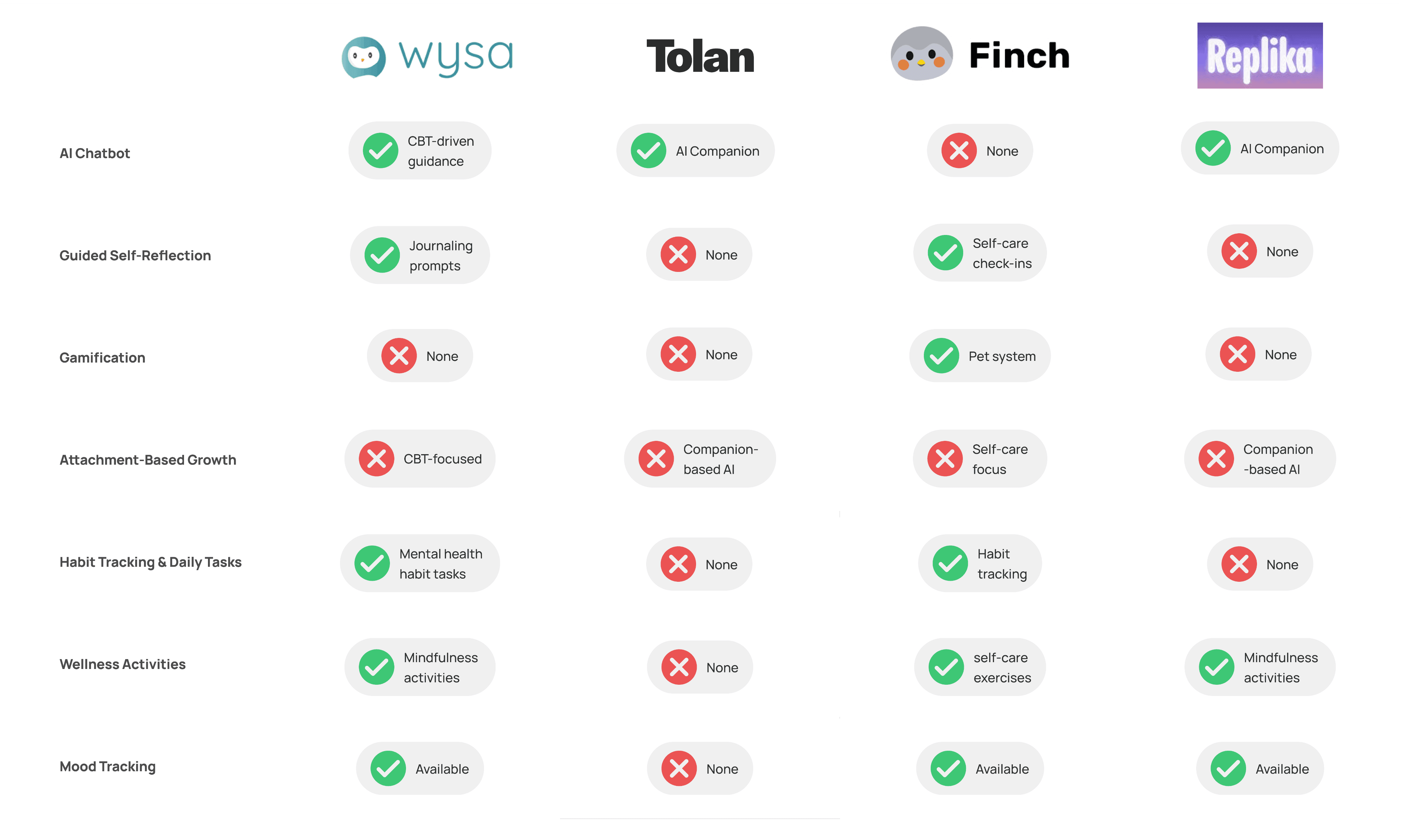

Research Insights
01
Integrated Attachment Theory
Insight
Most existing apps fail to address relational and emotional growth through structured attachment-based methodologies, leaving a gap in targeted relationship-building tools.
Opportunity
By incorporating attachment theory with guided emotional and relational development, your app can uniquely position itself as a holistic solution for fostering meaningful connections and personal growth.
02
Gamification for Relational Skills
Insight
Gamification and habit tracking are underutilized in helping users build relational skills. Many apps focus on generic self-care or companionship without encouraging active skill development.
03
User Retention Challenges
Insight
Although apps with gamification and characters attract initial attention, many fail to maintain user engagement due to repetitive or shallow interactions. This results in users losing interest quickly.
Opportunity
Designing an engaging and dynamic system—where users feel challenged and rewarded for consistent participation—can significantly boost retention and long-term satisfaction.
Personas
The target users for this product are late teenagers and young adults between the ages of 16 and 34, who are navigating the
complexities of various relationships, especially in new or unfamiliar social environments.
From Static Room
to Living Forest
The immersive forest design was introduced to provide a sense of growth and connection.
Enhanced navigation by organizing features into a visually engaging and intuitive layout.
From Predefined Scenarios to Mission-Based AI Chat
Scenarios chosen upfront don’t adapt to user progress or responses during the role-play.
Visiting animals with unique traits assign personalized missions, including chat activities.
89% of users felt more engaged with character-driven missions over static activities.
From Text-Based
to Voice-Centered
72% of users felt more authentic when speaking versus selecting from predefined options.
Shifted to a voice-first chatbot with text fallback for authentic and engaging interactions.
Information architecture


Low-Fi Wireframes


Takeaways
What I learned
Recognized the value of early user testing in the design process, specifically conducting
tests immediately after creating wireframes.
Gained insight into the
importance of understanding the trends and lifestyles of target users for inclusive design.
Learned how to use MidJourney to generate necessary images, enhancing visual elements efficiently.
Captured the warmth and authenticity of human interactions, while AI technology can sometimes come across as impersonal.
Areas for Improvement or
Future Considerations
Expand the Behavioral Progress Tracker to reflect more nuanced changes in user engagement and emotional growth over time.
Refine the design of the AI-driven activities to ensure they feel natural and reinforce attachment styles effectively.
Incorporate additional feedback loops, such as visual and textual summaries, to help users understand their progress and next steps more clearly.
Intro
Therapists often find that the most common question patients ask is,
One key answer lies in having healthy relationships,
as they are fundamental to wellbeing in society.
“How can I be happy?”
By leveraging attachment theory, there’s an
opportunity to create a mental health app that offers
tailored strategies for managing stress, anxiety,
and relationship dynamics.


The Opportunity
A Fact that Illustrates the Why
Research shows that individuals with insecure
attachment styles are more prone to higher stress
levels and relationship anxiety.


Problem statement
“How might we create a mental health app that leverages attachment theory to help people develop healthier relationship patterns?”


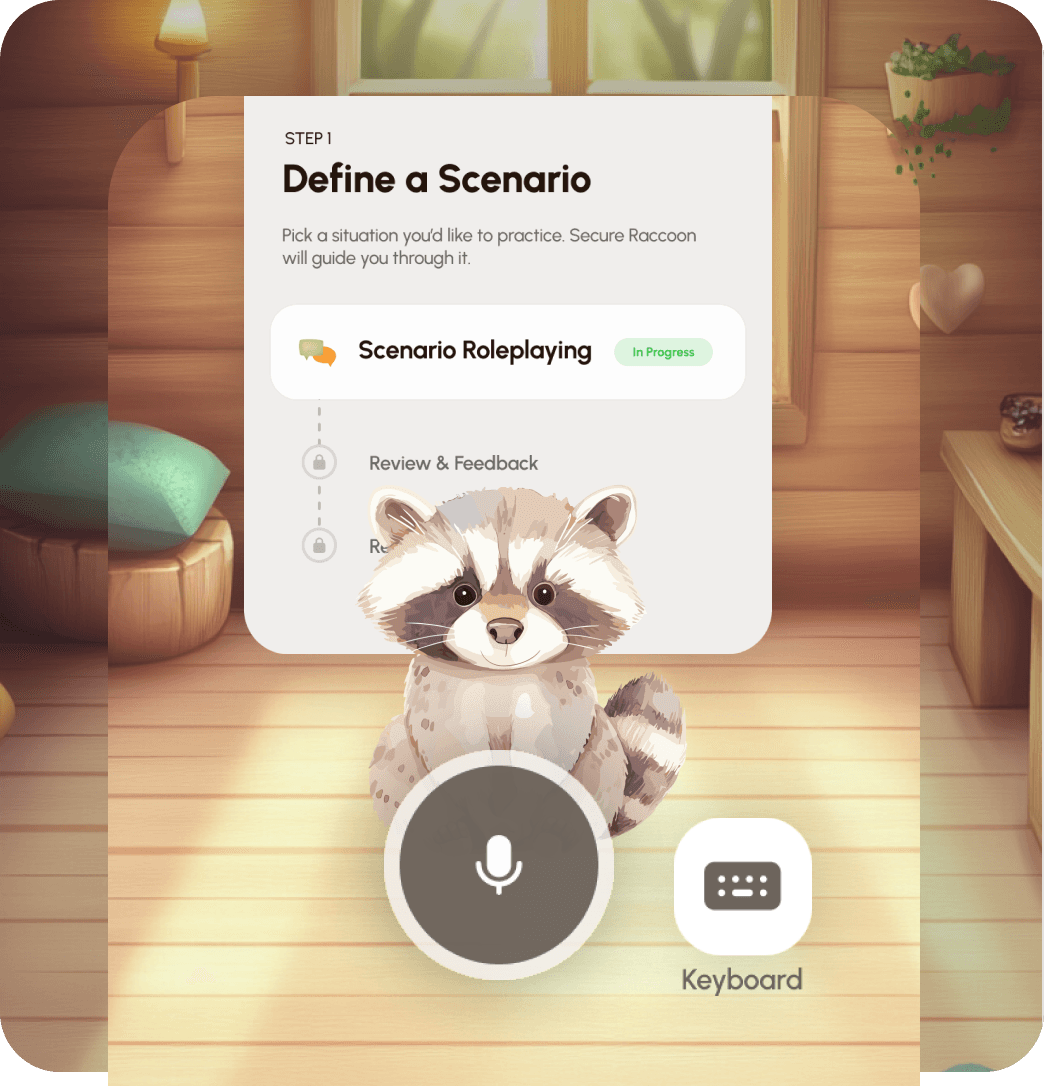

02
Dynamic Gamification System
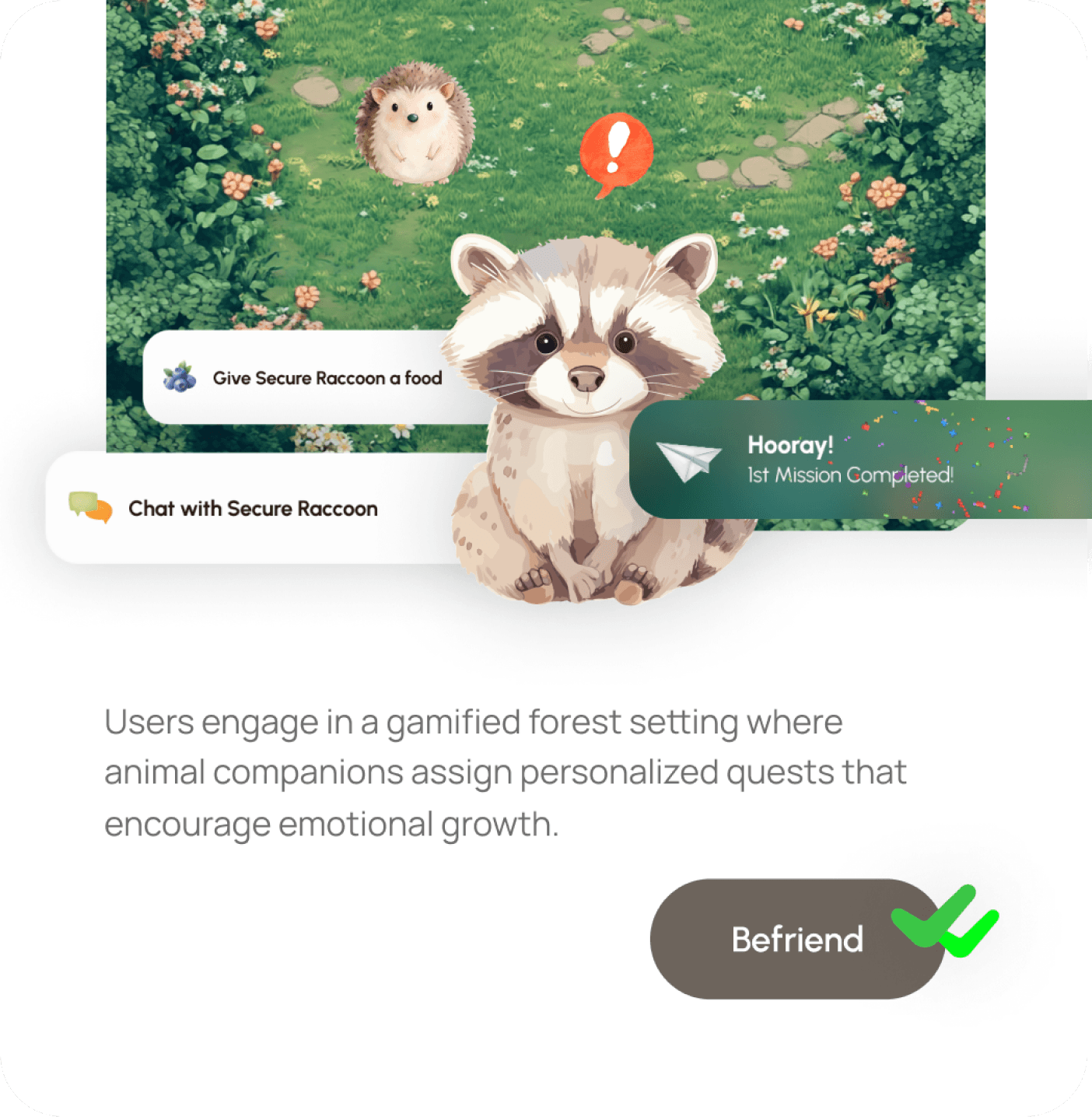



Solutions
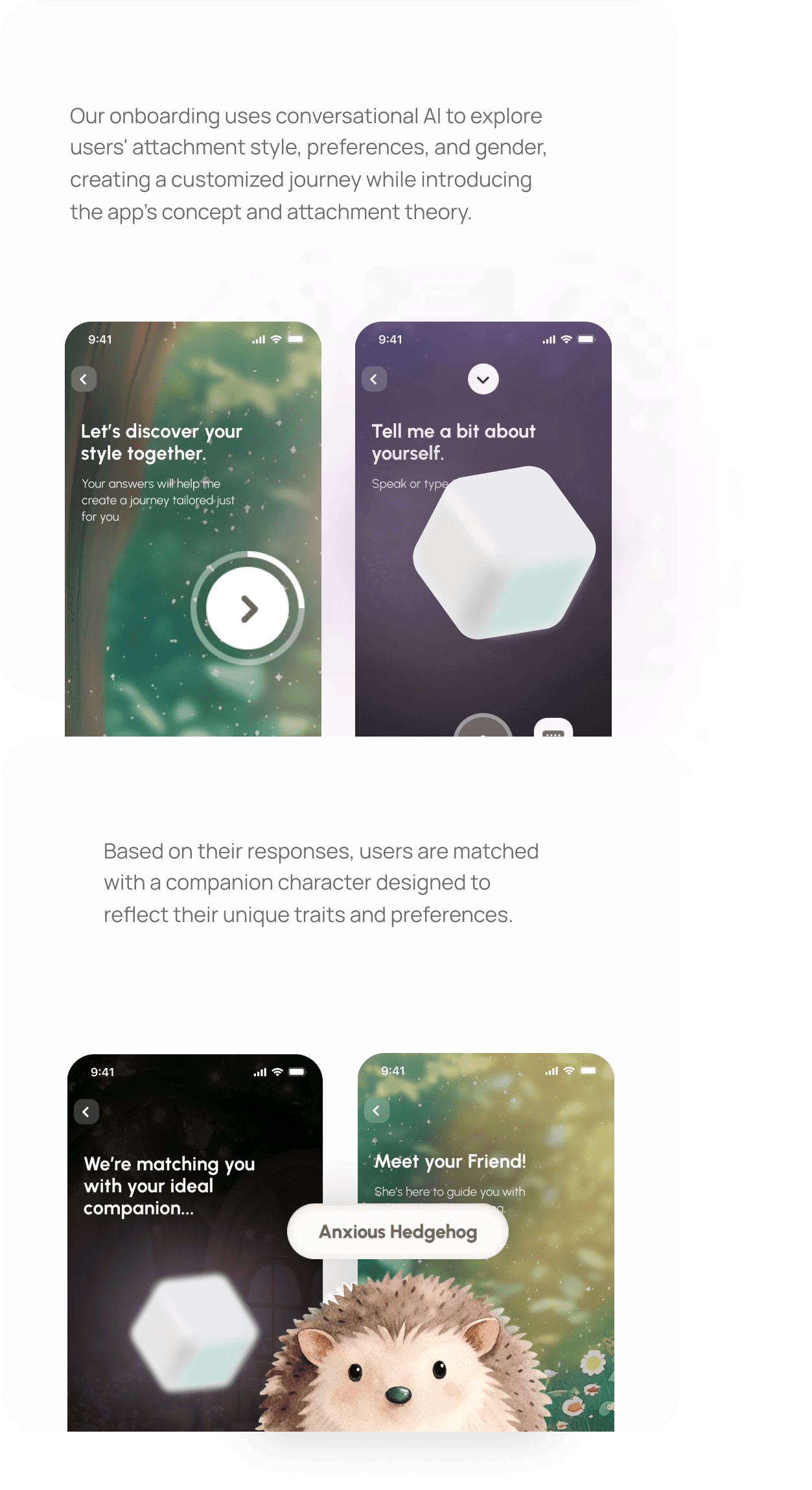



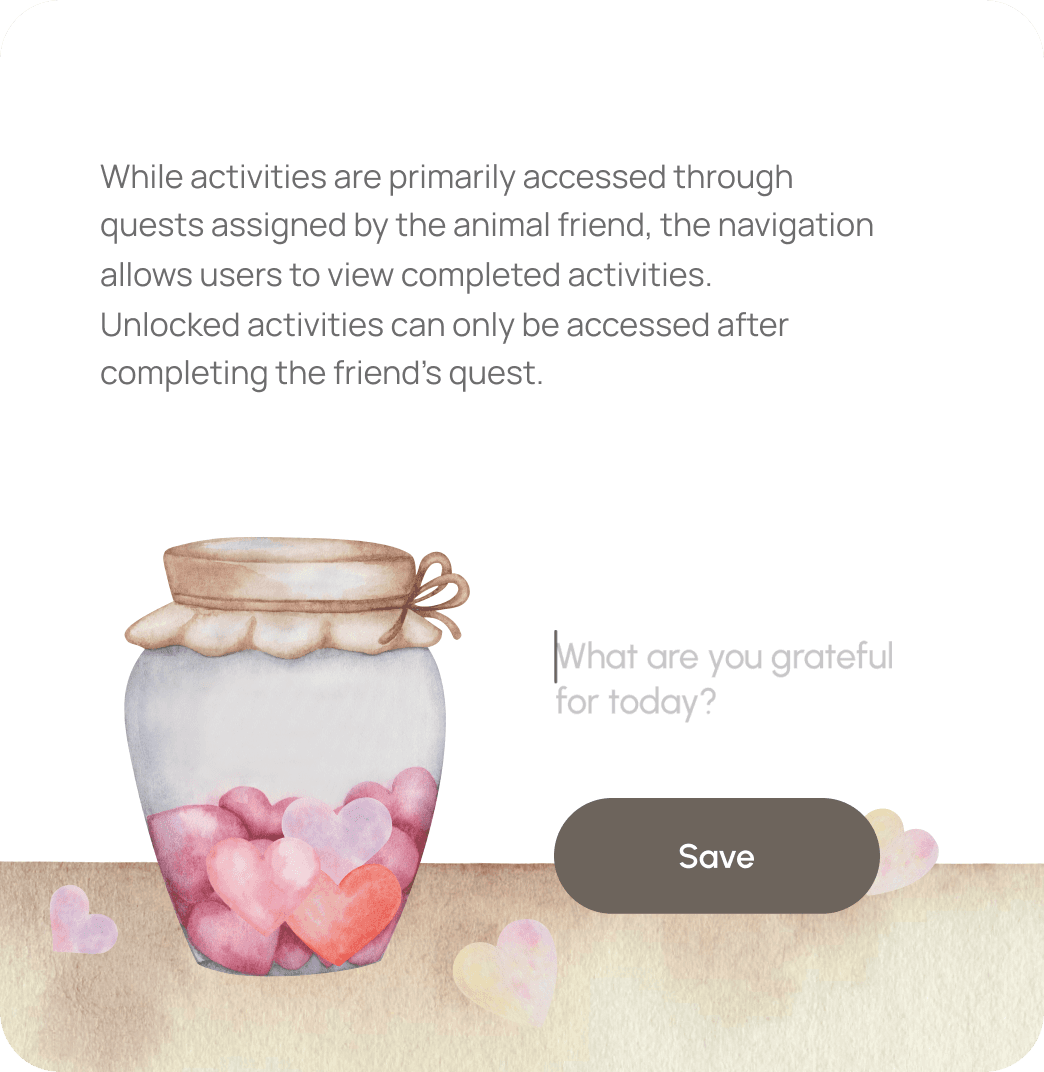

04
Activity
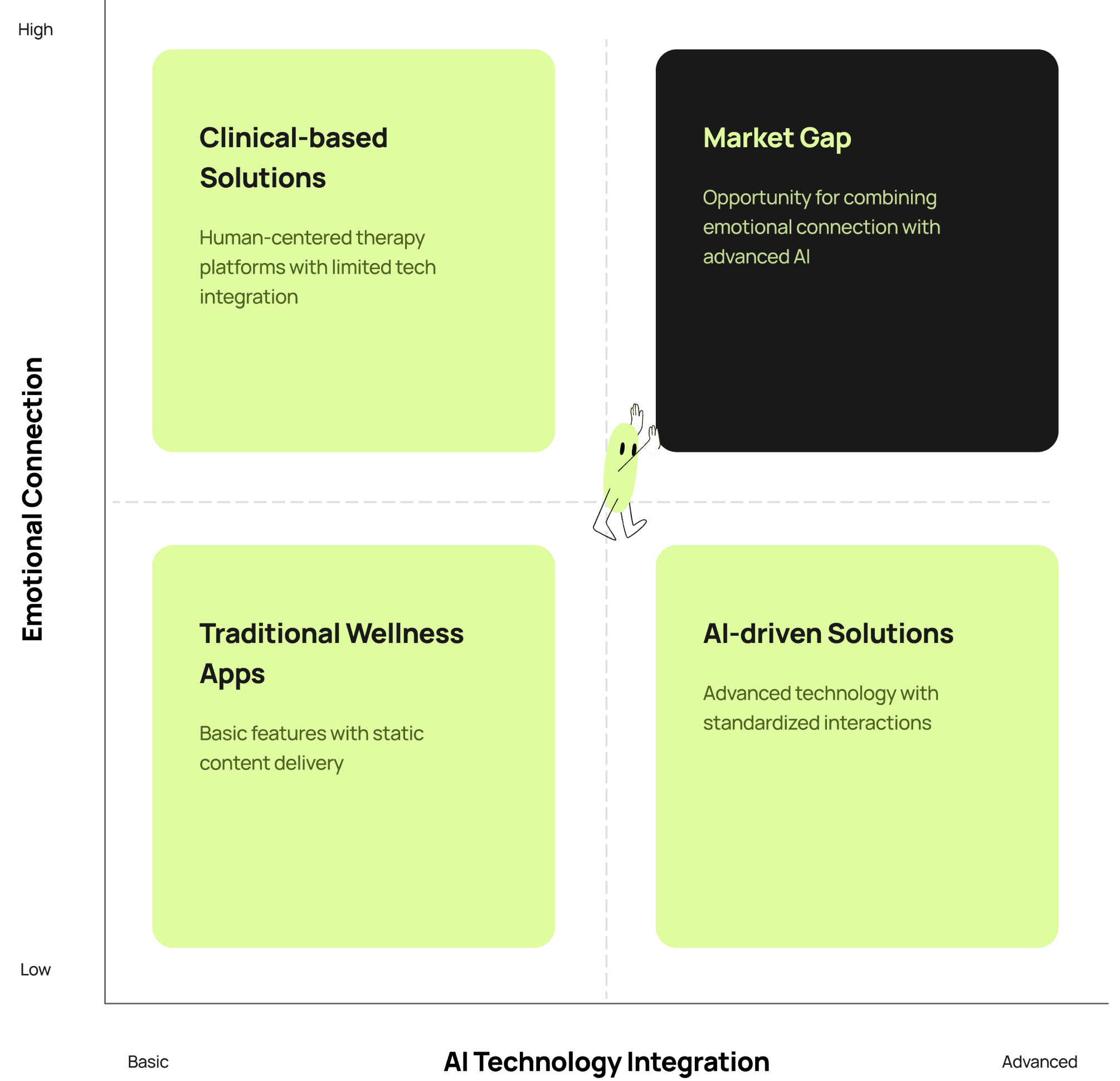

Opportunity
Introducing gamified relational skill-building and habit tracking can encourage consistent engagement while making the learning process enjoyable and interactive for users.


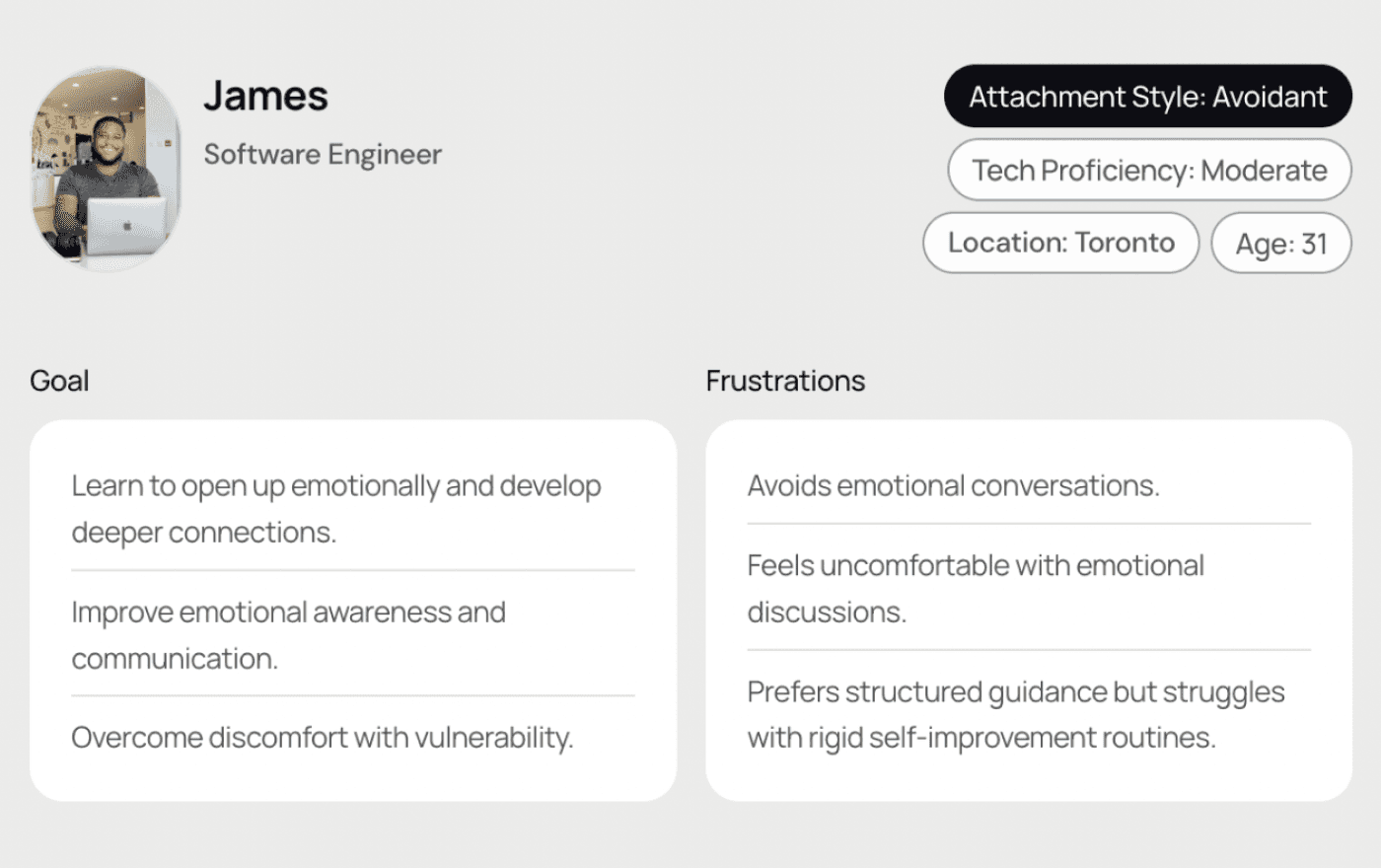

User Testing & Iterations
Transform the app into an emotionally engaging and user-friendly platform by incorporating feedback and usability insights. Seven rounds of user testing with 13 participants shaped the journey to the final design.
Mid-Iteration


Final Version


Initial Version
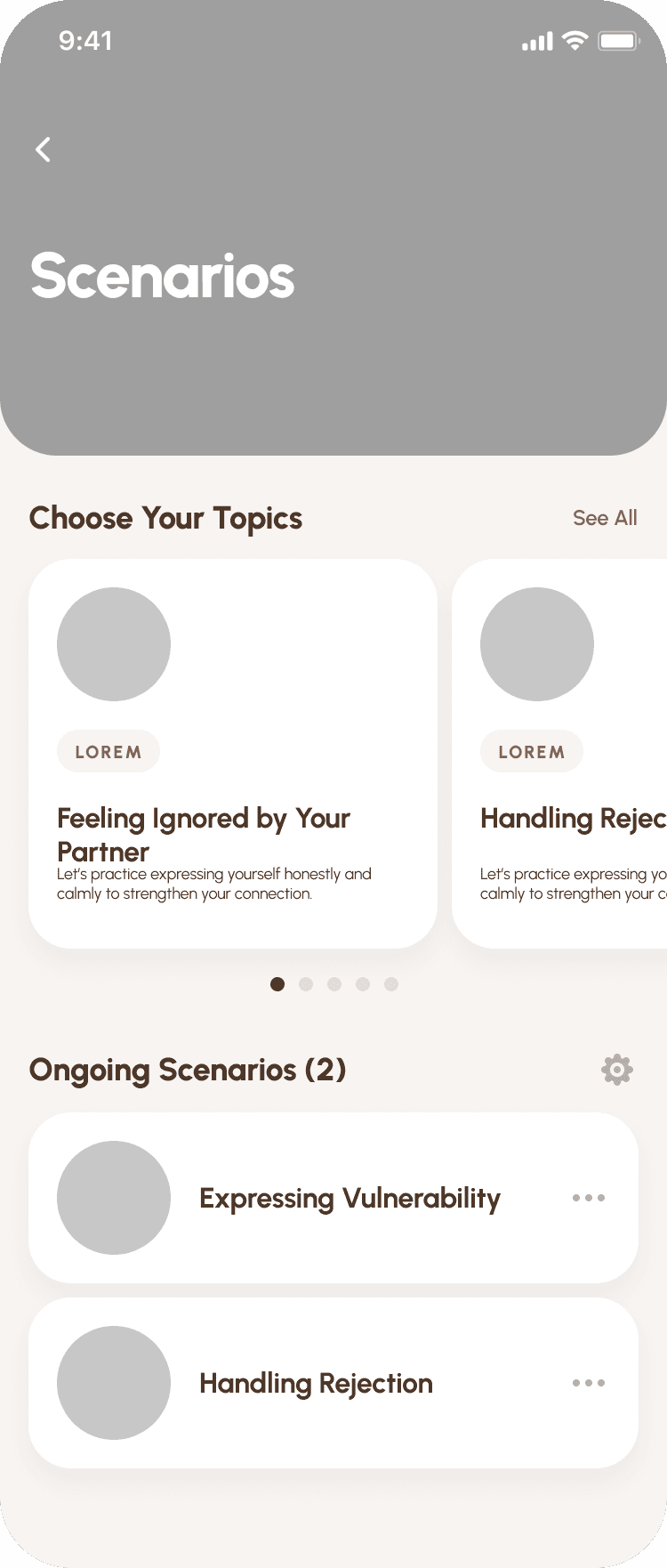

Initial Version


Mid-Iteration


Final Version
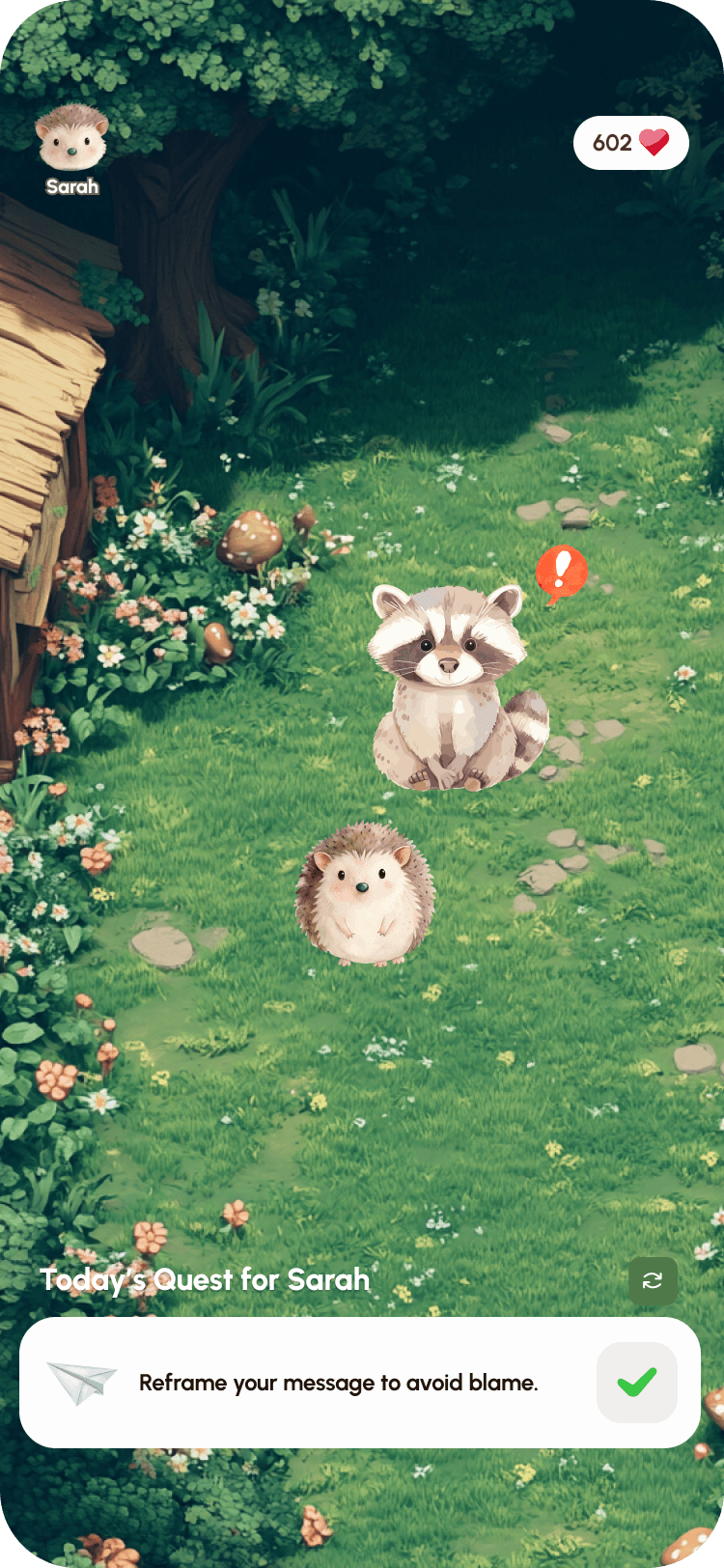

Initial Version
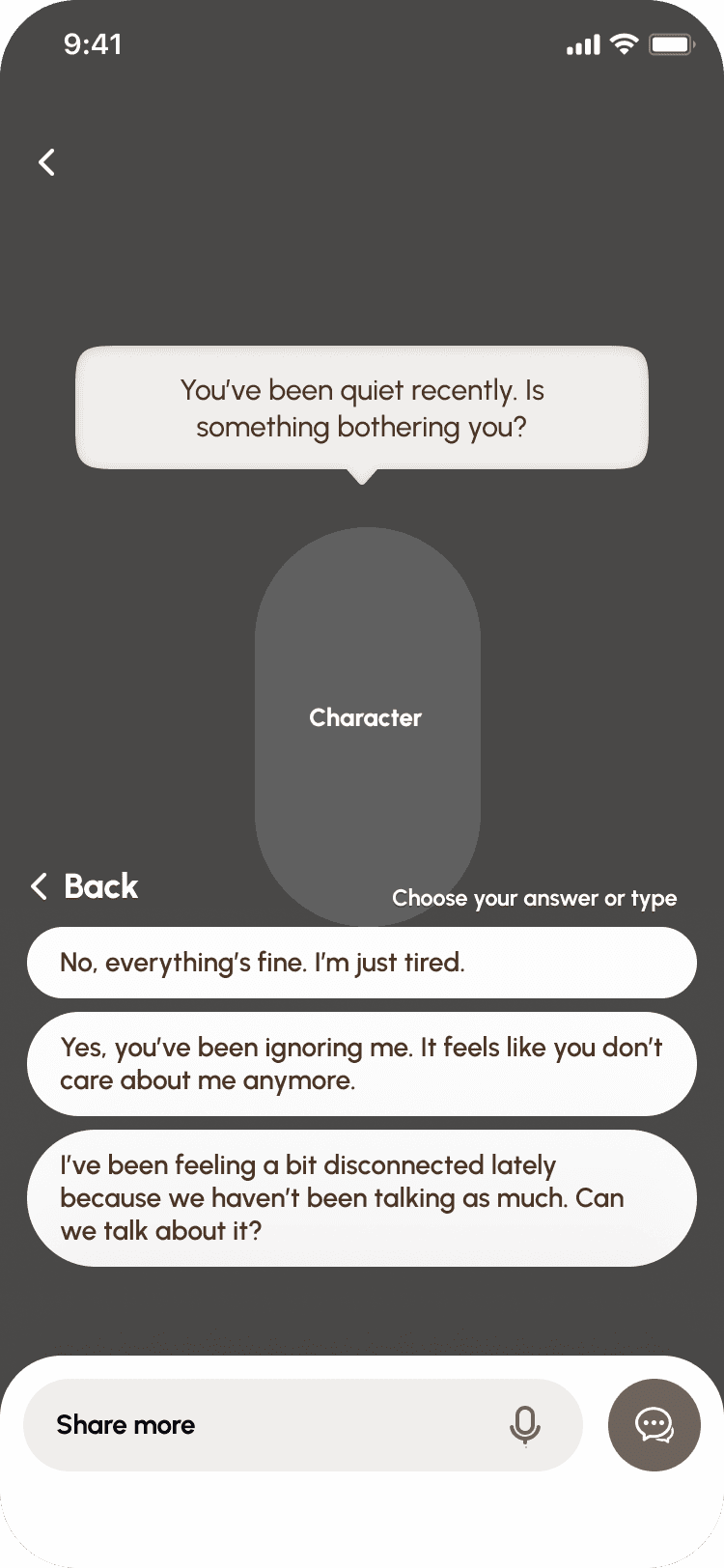

Mid-Iteration


Final Version


03
Scenario-Based Role-Playing
01
Personalized Onboarding
02
Dynamic Gamification System






Problem: Content creators struggle with disorganized AI outputs, limited social media templates
and inefficient prompt workflows in existing tools.
SOLUTION
AI-Powered Content Generation: Supports generating YouTube video descriptions, Instagram hashtags, tweets, LinkedIn posts, and more.
Credit System: Users purchase credits and spend them per generation.
Authentication: Secure authentication powered by Clerk.
Payment Integration: Users can purchase credits via Stripe.
User Dashboard: Track credit balance and view past AI-generated content.
Dark Mode Support: Modern UI with light and dark themes.
View Website